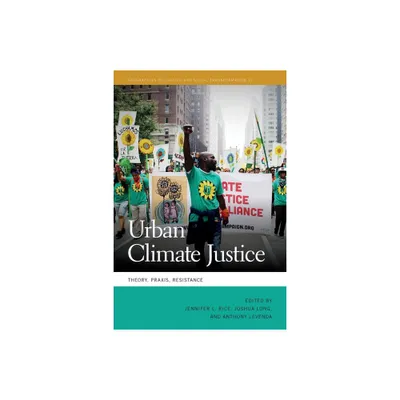Home
Climate Justice: An Introduction / Edition 1
Loading Inventory...
Barnes and Noble
Climate Justice: An Introduction / Edition 1
Current price: $56.99


Barnes and Noble
Climate Justice: An Introduction / Edition 1
Current price: $56.99
Loading Inventory...
Size: OS
*Product Information may vary - to confirm product availability, pricing, and additional information please contact Barnes and Noble
The link between justice and climate change is becoming increasingly prominent in public debates on climate policy. This clear and concise philosophical introduction to climate justice addresses the hot topic of climate change as a moral challenge.
Using engaging everyday examples the authors address the core arguments by providing a comprehensive and balanced overview of this heated debate, enabling students and practitioners to think critically about the subject area and to promote discussion on questions such as:
Why do anything in the face of climate change?
How much do we owe our descendants – a better world, or nothing at all?
How should we distribute the burden of climate action between industrialized and developing countries?
Should I adopt a green lifestyle even if no one else makes an effort?
Which means of reducing emissions are permissible?
Should we put hope in technological solutions?
Should we re-design democratic institutions for more effective climate policy?
With chapter summaries, illustrative examples and suggestions for further reading, this book is an ideal introduction for students in political philosophy, applied ethics and environmental ethics, as well as for practitioners working on one of the most urgent issues of our time.
Using engaging everyday examples the authors address the core arguments by providing a comprehensive and balanced overview of this heated debate, enabling students and practitioners to think critically about the subject area and to promote discussion on questions such as:
Why do anything in the face of climate change?
How much do we owe our descendants – a better world, or nothing at all?
How should we distribute the burden of climate action between industrialized and developing countries?
Should I adopt a green lifestyle even if no one else makes an effort?
Which means of reducing emissions are permissible?
Should we put hope in technological solutions?
Should we re-design democratic institutions for more effective climate policy?
With chapter summaries, illustrative examples and suggestions for further reading, this book is an ideal introduction for students in political philosophy, applied ethics and environmental ethics, as well as for practitioners working on one of the most urgent issues of our time.


















